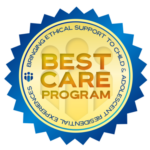Your teenager is struggling with addiction. As their parent, you want to protect them and fend off whatever obstacles stand in the way of your child having a safe and healthy life. Teenagers are normally grumpy, egotistical and demanding. They are typically so engrossed in their own lives that they ignore their schoolwork and blow off their families. Teenage addicts are no exception; they tend to go their own way and want to handle their dependency alone. They are not on board with treatment of any kind. You have come to the point where your teenager has a problem but doesn’t want your help. What do you do now?
Your prime objective is deciding whether or not your teenager requires professional addiction treatment. Drug and alcohol abuse affects health in both the short and long term. When you’re asking yourself whether your child needs rehab, you’ve either suspected use for a while and are trying to determine severity or you’re just finding out that your teen is using. Your next step is to look for signs of addiction.
Assessing Your Teen
When evaluating your teenager for substance abuse, there are several indications to look out for. First and foremost, assess whether your child is feeling depressed, hopeless or having thoughts of self-harm. Secondly, attempt to identify whether an addiction is present. Look for escalations in alcohol or drug use and whether or not your teenager has recently experimented with more dangerous substances. Thirdly, note any telltale signs such as alterations in their physical appearance, unusual behaviors and significant habitual changes.
Telltale signs of addiction may vary depending on the teenager, but here are some examples of what these signs could be:
Alterations in their physical appearance may include loss or gain of weight, bloodshot or watery eyes, shakes and tremors, track marks and nosebleeds. They may start showing a significant lack of care about their personal hygiene and sleep more than usual.
Unusual behaviors are abrupt increased or decreased appetite, recurring problems with peers at school and diminished academic performance. Your teenager may also begin constantly lying about their whereabouts and spend more time with new associates – typically those who give them access to drugs.
Significant habitual changes are usually less obvious signs that they are misusing substances. Examples of such are missing prescription medication, an unexplained ding on the car bumper or drug paraphernalia left out in the open on their bedside table.
Should you notice any of these signs or other troubling indications of ongoing substance use, it’s probably time to steer your child towards treatment.
Make Your Support Known When Seeking Treatment
Should your teenager need to go to rehab, they’ll need to know that you, as their parent, will be there for them. Whether they recognize it or not, your support is essential in recovery.
Neither you nor your teenager knows what their future holds. They may be angry and upset with you and their situation, but they’re more likely scared. Scared that drugs have taken over their lives, scared of what their friends and family think of them, and scared about the stigma associated with attending rehab. No matter what they say or do, your teenager needs your love and support now more than ever.
Educate Your Teenager
Teenagers are also hesitant to go to rehab, mostly because they are scared of the recovery process. This is where you as the parent can help navigate the waters ahead. Give your teenager the time and attention they need to become familiar with what to expect.
One suggestion to do just that includes taking a drive to the rehab facility and talking with a recovery expert. Encourage your teen to ask any questions while there – perhaps about the rehab treatment models the facility uses, what to expect in daily therapy sessions and what a typical day looks like from beginning to end. Being educated on the process together may also be a positive bonding step in the right direction for you both.
Addiction Treatment for Your Teenage Son
It’s important to note that forcing the issue isn’t likely the best course of action. The goal is to help your te
en willingly participate in treatment. The staff here at ARCH Academy understands how difficult that can be.
At ARCH Academy, we are proud to guide classes of teenagers to productivity, happiness and sobriety. To learn more about what we do here at ARCH Academy, contact our admissions team. They’ll be happy to explain our offerings and answer your questions.




